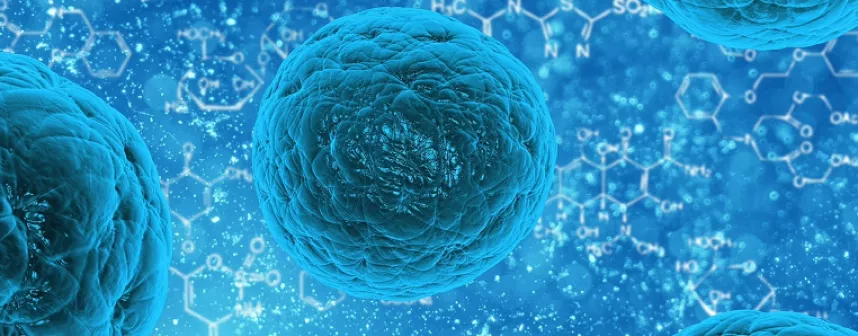Improved detection of biomarkers: scientists from Bremen discover new method with microcapsules
August 14, 2018
To investigate and cure diseases, researchers and doctors must be able to detect disease-related biological substances such as proteins and nucleic acids, so-called biomarkers, in small amounts and with a high precision in the blood or the urine of patients. Jacobs University researchers Dr. Sujit Kumar Verma and Prof. Dr. Sebastian Springer, in collaboration with the group of Prof. Dr. Gerd Klöck at the Bremen University of Applied Sciences (Hochschule Bremen), have developed a new highly sensitive detection method. Here, biomarkers are captured on microscopically small particles, so-called microcapsules, with the help of antibodies.
“We’ve learned how to make these microcapsules already some time ago,” explains Springer, “and we have managed to stick antibodies on their surfaces so they can catch the biomarkers. What we wanted to know now was whether our detection method stands the test against the existing procedures that are now used in industry”. Conventional approaches use plastic surfaces, so-called plates, to capture molecules. But the Springer and Klöck groups use microcapsules. Once the biomarker is captured on the microcapsules, all the microcapsules are subjected to a specific staining reaction, and their color is then read in a machine called a flow cytometer. Regarding this procedure’s performance when measured against currently used methods, Springer says: "After comparing the efficiency and sensitivity of our approach to those already being used, we can say that ours performs better."
The ability of the microcapsule procedure to detect some important biomarkers might have practical applications in the field of cancer diagnosis, since it can detect specific proteins at extremely low concentrations. The researchers look forward to further investigation, as they believe that similar microcapsules can be developed for biomarkers of other diseases. They are also talking to commercial companies that might want to use their method. "This is such a great Bremen success story", Springer concludes. "The technology was developed in a cooperation between two universities in Bremen, and some Bremen companies are already expressing interest."
Source:
Sujit Kumar Verma, Anja Karin Albrecht, Verena Siebecke, Gerd Klöck, Tatiana A. Kolesnikova, and Sebastian Springer: Comparative validation of a microcapsule-based immunoassay for the detection of proteins and nucleic acids. PLOS ONE 13 (2018): e0201009; doi: 10.1371/journal.pone.0201009
Questions will be answered by:
Sebastian Springer | Professor of Biochemistry and Cell Biology
Tel.: +49 421 200 3243 | s.springer [at] jacobs-university.de
